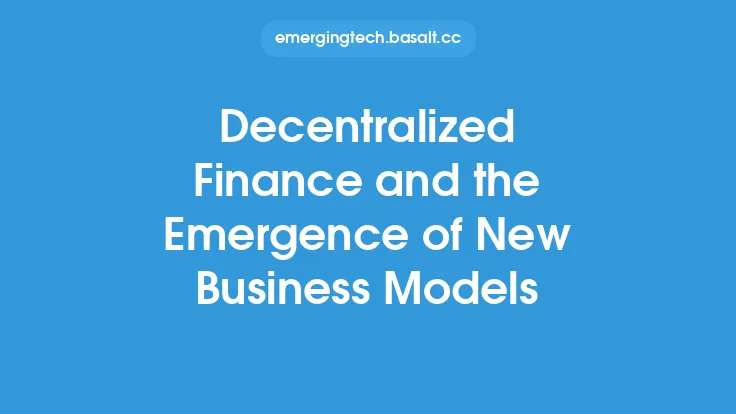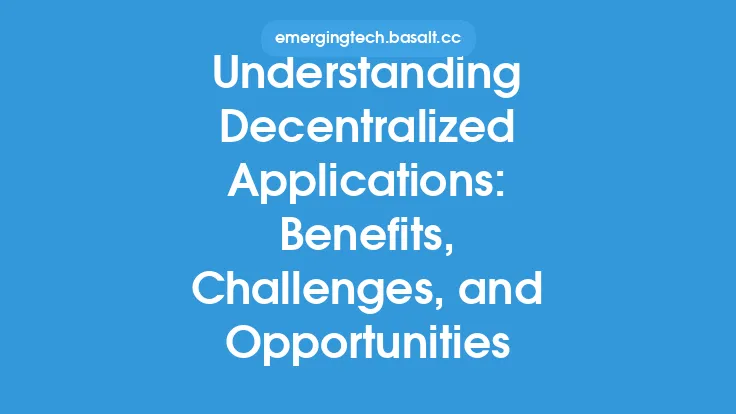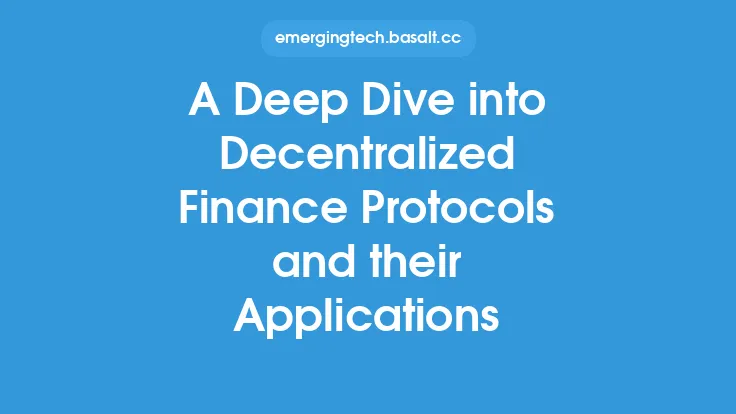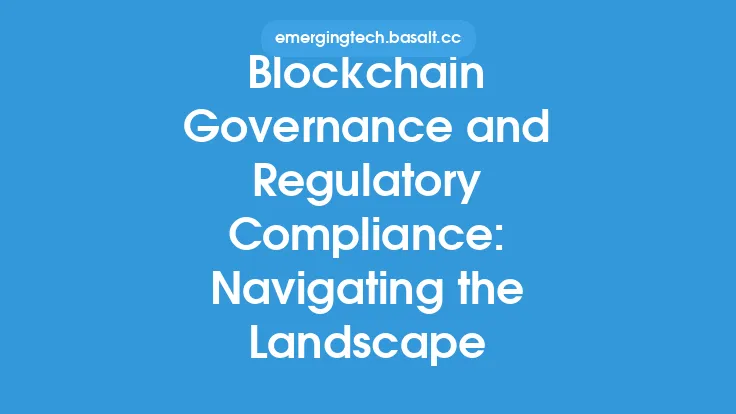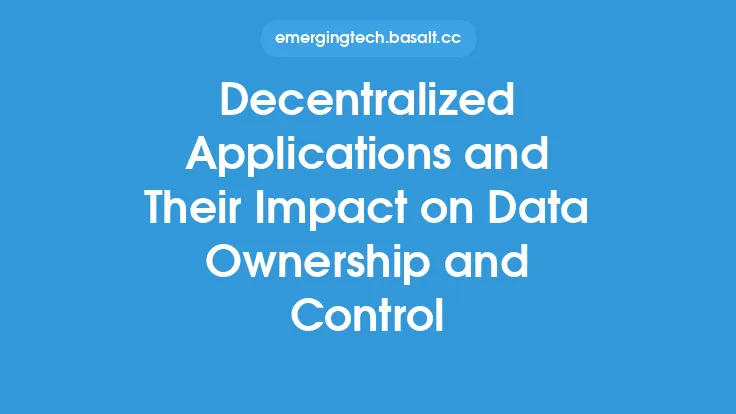Decentralized governance models have been gaining significant attention in recent years, particularly with the rise of blockchain technology and decentralized autonomous organizations (DAOs). A DAO is a self-governing system that operates on a blockchain network, allowing for decentralized decision-making and community-driven governance. In this article, we will delve into the world of DAOs and their applications, exploring the benefits, challenges, and potential use cases of these innovative governance models.
What are DAOs?
A DAO is a decentralized autonomous organization that operates on a blockchain network, using smart contracts to facilitate decision-making and governance. DAOs are designed to be autonomous, meaning that they can operate independently without the need for a central authority or intermediary. This is achieved through the use of smart contracts, which are self-executing contracts with the terms of the agreement written directly into lines of code. DAOs are typically governed by a set of rules and protocols that are encoded in the smart contracts, ensuring that the organization operates in a transparent and decentralized manner.
Key Characteristics of DAOs
DAOs have several key characteristics that distinguish them from traditional governance models. These include:
- Decentralization: DAOs operate on a blockchain network, allowing for decentralized decision-making and community-driven governance.
- Autonomy: DAOs are designed to operate independently, without the need for a central authority or intermediary.
- Transparency: DAOs are transparent, with all transactions and decisions recorded on a public ledger.
- Security: DAOs are secure, using advanced cryptography and smart contracts to protect the organization and its assets.
- Community-driven: DAOs are governed by a community of stakeholders, who make decisions and shape the direction of the organization.
Applications of DAOs
DAOs have a wide range of potential applications, from governance and decision-making to finance and social impact. Some examples of DAOs include:
- Decentralized finance (DeFi) protocols: DAOs can be used to govern DeFi protocols, such as lending platforms and stablecoin issuers.
- Social impact organizations: DAOs can be used to govern social impact organizations, such as charities and non-profits.
- Community governance: DAOs can be used to govern community-driven projects, such as open-source software development and community land trusts.
- Supply chain management: DAOs can be used to govern supply chain management, ensuring that goods and materials are sourced and distributed in a transparent and efficient manner.
Benefits of DAOs
DAOs offer several benefits, including:
- Increased transparency and accountability: DAOs are transparent, with all transactions and decisions recorded on a public ledger.
- Improved security: DAOs are secure, using advanced cryptography and smart contracts to protect the organization and its assets.
- Enhanced community engagement: DAOs are community-driven, allowing stakeholders to participate in decision-making and shape the direction of the organization.
- Increased efficiency: DAOs can automate decision-making and governance, reducing the need for intermediaries and increasing the speed of decision-making.
Challenges and Limitations of DAOs
While DAOs offer several benefits, they also face several challenges and limitations. These include:
- Scalability: DAOs can be difficult to scale, particularly as the number of stakeholders and decision-makers increases.
- Complexity: DAOs can be complex, requiring a high degree of technical expertise to establish and maintain.
- Regulatory uncertainty: DAOs operate in a regulatory gray area, with unclear rules and guidelines governing their operation.
- Security risks: DAOs are vulnerable to security risks, such as hacking and smart contract vulnerabilities.
Real-World Examples of DAOs
Several real-world examples of DAOs exist, including:
- MakerDAO: A decentralized lending platform that allows users to borrow and lend cryptocurrencies.
- Compound: A decentralized lending protocol that allows users to borrow and lend cryptocurrencies.
- Aragon: A decentralized platform that allows users to create and manage their own DAOs.
- DAOstack: A decentralized platform that allows users to create and manage their own DAOs.
Future of DAOs
The future of DAOs is uncertain, but several trends and developments are likely to shape the evolution of these governance models. These include:
- Increased adoption: DAOs are likely to become more widely adopted, as more organizations and individuals become aware of their benefits and potential applications.
- Improved scalability: DAOs are likely to become more scalable, as new technologies and protocols are developed to support their operation.
- Regulatory clarity: DAOs are likely to receive greater regulatory clarity, as governments and regulatory bodies develop rules and guidelines governing their operation.
- Increased security: DAOs are likely to become more secure, as new technologies and protocols are developed to protect them from security risks.
Conclusion
In conclusion, DAOs are innovative governance models that offer several benefits, including increased transparency and accountability, improved security, and enhanced community engagement. While they face several challenges and limitations, DAOs have the potential to revolutionize the way we think about governance and decision-making. As the technology continues to evolve and mature, we can expect to see more widespread adoption of DAOs, as well as the development of new and innovative applications for these governance models.
